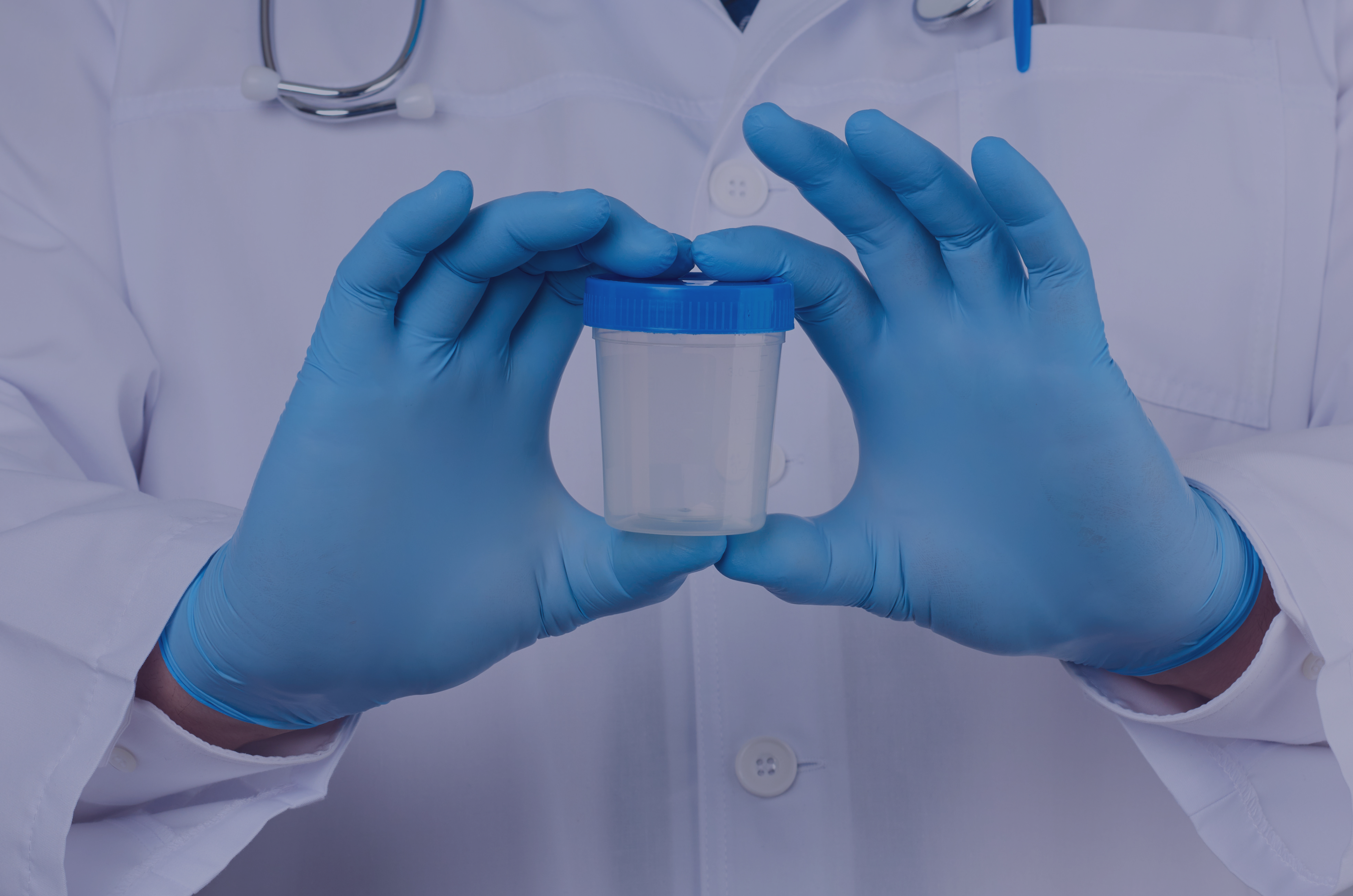ORDERING A TEST AFTER A MISCARRIAGE
Have tests after a miscarriage and find out the possible cause of pregnancy loss. Increase your chances of achieving your dream of a healthy offspring!
If you have had a miscarriage and don’t know what to do next or are having trouble getting the material, CONTACT OUR INFOLINE. We have also included all the necessary information below, which shows you step by step how to properly order the test after a miscarriage.
For the test result to be reliable, the miscarriage material must be secured according to the instructions and delivered to the laboratory (in person) no later than 48 hours after the miscarriage.

On this page you will find:
- Study order documents / material collection instructions
- Post miscarriage test order step by step
- Securing the abortion material
- Filling out the test order form
- Paying for the test
- Delivering the material to the laboratory
- Receiving the result
- Find out how much the tests cost
- What diseases does genetic testing detect after miscarriage?
- Fetal sex testing after miscarriage
Study order documents / material collection instructions
Do you have questions about testing after a miscarriage?
Test order after miscarriage
step by step
STEP 1: Securing the abortive material
I.) If the miscarriage took place in the hospital
To properly secure the material for examination, you need a kit for storing and transporting miscarriage material. Such a kit includes:
- sterile urine container,
- saline (volume that covers the test material),
- a bag to protect the container with the material.
If the hospital has not been supplied with a kit for storing material from a miscarriage, you can complete it yourself (the components of the kit are available at any pharmacy). The doctor, during the procedure of curettage of the uterine cavity after a miscarriage, secures the material for examination. The material is placed in a saline container, capped tightly and described with the patient’s data. The examination material should be stored at 2-8 °C.
II.) If the miscarriage occurred at home
If the miscarriage occurred at home, the material should be secured in a similar way – that is, in a sterile urine container (available at any pharmacy). The material should be dunked in saline (the volume covering the test material) and tightly capped. The material should be stored at 2-8°C. Remember that proper protection of the material significantly affects the reliability of the result obtained.

STEP 2: Filling out the study order form
Together with the material from the miscarriage, a properly completed test order form must be submitted to the Gyncentrum Genetic Laboratory. The document should be signed by one of the parents.

The fee for the test must be paid on the day the abortion material is delivered to the Gyncentrum Genetic Laboratory. This can be done as follows: by bank transfer or by cash or card on the spot at Gyncentrum clinics. Confirmation of the transfer should be sent to e-mail: [email protected] or deliver it in hard copy to the point where the material was brought.

STEP 4: Deliver the material to the laboratory
Material for genetic testing can be delivered PERSONALLY to one of the branches of Gyncentrum:
- Sosnowiec, ul. Wojska Polskiego 8a | Mon-Fri: 6:00-22:00 | payment: by bank transfer only.
- Katowice, Żelazna 1 | Mon-Fri: 7:00 am – 7:00 pm, Sat: 7:00-13:00 | payment: cash, card, bank transfer.
- Kraków, 10 Mehoffera St. | Mon-Fri: 7:00 a.m. – 7:00 p.m. | payment: cash, card, bank transfer.
- Bielsko-Biała, 140 Komorowicka St. | Mon: 7:00am-5:00pm, Tues: 7:00-14:30, Wed: 7:00-17:00, Thurs-Fri: 7:00-14:30 | payment: cash, card, bank transfer
- Częstochowa, ul. Kozielewskiego 9 | Mon-Thu: 08:00-14:00, Wed-Wed: 07:00-14:00, Fri: 08:00-12:00 | payment: cash, card, bank transfer
- Lublin, ul. Tomasza Zana 32a | Tuesday: 08:00-16:00, Wed: 08:00-10:00 | payment: cash, card, bank transfer
- Poznań, 151 Głogowska St. | pt: 8:00 am – 2:00 pm | payment: cash, card, bank transfer

The test result is ready for collection within a maximum of 10 working days. You can apply for it in person at the Gyncentrum Genetic Laboratory or receive it by e-mail to the address indicated by the patient.
Consult the testresult
It is worth discussing the test result with a Gyncentrum reproductive medicine specialist. The consultation is free of charge for those patients who have had a fetal genetic disease test after a miscarriage in our laboratory.

Find out how much research costs
PLN 1,800
820 zł
397 zł
397 zł
What diseases does genetic testing detect after a miscarriage?
Approximately 15-20% of all clinically diagnosed pregnancies end in miscarriage [1]. Most often, the loss occurs already in the first one. Genetic factors are considered to be the main cause of spontaneous miscarriages in early pregnancy, primarily numerical chromosomal aberrations occurring in the embryo, called aneuploidies. Examples of such chromosomal aberrations include Down syndrome (trisomy of chromosome 21), Edwards syndrome (trisomy of chromosome 18), Patau syndrome (trisomy of chromosome 13), Turner syndrome (monosomy of chromosome X in the karyotype of a girl), Klinefelter syndrome (most often 47, XXY).
An embryo with an abnormal number of chromosomes in the karyotype does not develop properly and most often miscarriage occurs . Defects of this type arise completely spontaneously (usually already at the stage of fusion of the genetic material of the ovum and sperm), which means that the child does not inherit them from the parents.
[1] Characteristics of miscarriages and rights of a woman after pregnancy loss, M. Lewicka, M. Sulima, M. Pyć, B. Stawarz, Annales Academiae Medicae Stetinensis 2013, vol. 59 no. 1, pp. 123-129.
Why is it important to test for fetal genetic diseases after a miscarriage?
- Genetic diseases are the most common cause of miscarriage, so it is worth excluding fetal aneuploidies first.
- The test allows you to direct further diagnosis of miscarriage.
- The test allows you to estimate the risk of future miscarriages or the birth of a child with a genetic defect.
- Knowing the cause of the miscarriage, you can better prepare for the next pregnancy.
- It is easier to come to terms with the loss of a pregnancy when you know that it was not due to negligence and could not have been prevented.
- The result of the genetic test of the cause of miscarriage, performed at the Gyncenter Genetic Laboratory, can be consulted with a Gyncenter reproductive medicine doctor.
Fetal sex examination after miscarriage
Determining the sex of the baby on ultrasound is possible at the earliest around 16 weeks of pregnancy, when the fetus develops reproductive organs. However, not every woman manages to carry the pregnancy to this point. In such a situation, the only way to know the sex of the unborn child is to conduct a genetic test of the material from the miscarriage. It allows to determine the sex of the fetus with 100% certainty, regardless of the duration of the pregnancy. Knowing the sex of the child is required if the parents want to exercise their rights after a miscarriage.
Parents after a miscarriage have the right to:
- maternity leave (56 days)
- funeral allowance (PLN 4,000)
- compensation if the parents had an additional insurance policy
The above benefits can be applied for at the relevant offices.
Thank you for filling out the form
We will soon contact you to schedule a convenient consultation date.










